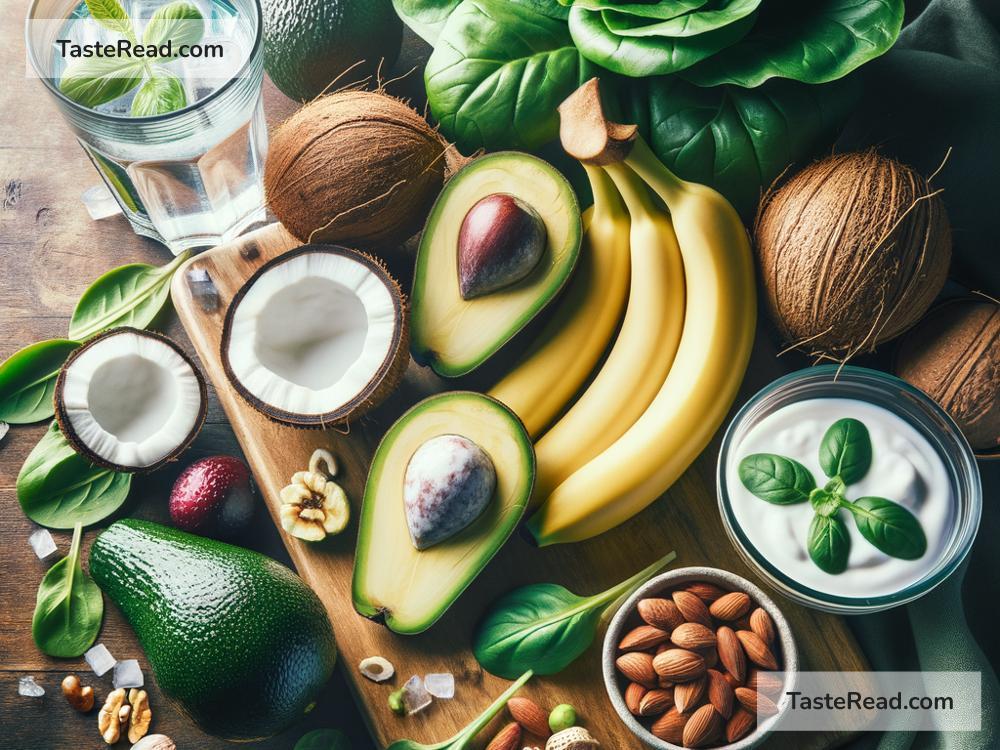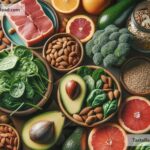Title: Foods That Support Electrolyte Balance and Why It’s Important
Electrolytes might sound like something out of a science class, but they’re actually essential for keeping your body healthy and energized. These tiny minerals, such as sodium, potassium, calcium, and magnesium, help maintain important processes in your body. They regulate fluid levels, keep your muscles working properly, and play a big role in nerve function.
When your electrolyte balance is off, you might feel symptoms like fatigue, muscle cramps, irregular heartbeat, dizziness, or dehydration. Thankfully, you can support your electrolyte levels by eating certain foods that naturally contain these vital minerals. In this blog, we’ll explore what electrolytes do, why they matter, and the best foods to help keep your electrolytes in check.
What Are Electrolytes?
Electrolytes are minerals in your body that carry an electric charge. Sounds complicated, right? But it’s pretty simple—they help your cells send signals so your muscles, heart, nerves, and brain all function properly. The major electrolytes include:
- Sodium: Helps control fluid balance and muscle contractions.
- Potassium: Keeps your muscles and nerves working while also regulating your heartbeat.
- Calcium: Important for strong bones, teeth, and muscle movement.
- Magnesium: Aids in energy production and supports muscle and nerve function.
You lose electrolytes every day through sweat, urine, and even breathing. Exercise, illness, and hot weather can make you lose them faster, which is why staying hydrated and eating the right foods is key.
Why Is Electrolyte Balance Important?
When your electrolytes get too low or too high, your body starts to struggle. Imagine trying to operate a car without enough fuel—it’s not going to work correctly. Similarly, your cells rely on electrolytes to function. Proper balance helps regulate energy levels, maintain healthy blood pressure, and ensures your muscles don’t tighten or cramp unnecessarily.
For example:
– If you’re low on sodium, you could experience dehydration or fatigue.
– Low potassium might cause muscle weakness or cramping.
– A lack of calcium can lead to brittle bones and spasms.
Electrolytes keep everything running smoothly in your system, like oil in an engine.
Foods That Support Electrolyte Balance
Now that you know why electrolytes are so important, let’s talk about the foods that naturally contain these minerals. Incorporating them into your diet can help your body stay energized and hydrated.
1. Bananas (Potassium)
Bananas are one of the best-known sources of potassium, which helps prevent muscle cramps and supports heart health. They’re also super portable and easy to include in snacks or breakfast.
2. Leafy Greens (Magnesium and Calcium)
Spinach, kale, and arugula are packed with magnesium and calcium. These minerals help with energy production, muscle function, and strong bones. Toss some greens into a salad or smoothie for a healthy boost.
3. Coconut Water (Potassium and Sodium)
Coconut water is nature’s electrolyte drink. It’s rich in potassium and sodium, making it a great choice after a workout or on a hot day. Plus, it’s hydrating and refreshing.
4. Nuts and Seeds (Magnesium)
Almonds, cashews, sunflower seeds, and pumpkin seeds are excellent sources of magnesium. Magnesium plays a major role in energy production and muscle function, making these a perfect snack for staying balanced.
5. Oranges and Citrus Fruits (Potassium)
Oranges, grapefruits, and other citrus fruits are loaded with potassium and are hydrating, thanks to their high water content. Eating citrus fruits also provides a dose of vitamin C, which helps boost your immune system.
6. Dairy Products (Calcium)
Milk, yogurt, and cheese are great sources of calcium, which your body needs for strong bones and proper nerve function. If you don’t consume dairy, options like almond milk and calcium-fortified juices can help.
7. Avocados (Potassium and Magnesium)
Avocados are creamy, delicious, and packed with potassium and magnesium. Spread some avocado on toast, add it to a salad, or blend it into guacamole for a tasty electrolyte boost.
8. Beans and Lentils (Magnesium and Potassium)
Chickpeas, lentils, and black beans are rich in minerals like magnesium and potassium. They’re versatile and can be used in soups, salads, or as a protein-rich side dish.
9. Salmon and Other Fish (Magnesium and Calcium)
Seafood, such as salmon, tuna, and sardines, provides magnesium and calcium, along with omega-3 fatty acids which are great for brain and heart health. Grilling or baking fish makes for a nutritious dinner option.
10. Salt (Sodium in Moderation)
While too much sodium can be harmful, a small amount is critical to maintaining your electrolyte balance. Add a pinch of salt to your meals, but focus on quality sources like sea salt or Himalayan salt.
What About Drinks?
Besides food, staying hydrated is key for electrolyte balance. Water is great, but sometimes adding electrolyte-rich drinks like coconut water or sports drinks can help you recover after exercise or on hot days. For a natural option, try making your own electrolyte drink by mixing water with a pinch of salt, a splash of lemon juice, and a touch of honey.
Final Thoughts
Electrolytes are like tiny helpers inside your body, making sure everything works the way it should. By eating foods rich in sodium, potassium, calcium, and magnesium, you can keep your electrolyte levels balanced and your body running optimally. Incorporate bananas, leafy greens, nuts, and coconut water—or any other foods listed above—into your daily diet to support your health.
Next time you feel tired or notice a muscle cramp, consider whether your electrolyte levels might be out of balance. A simple change in your food choices could leave you feeling refreshed, energized, and ready to take on your day!


